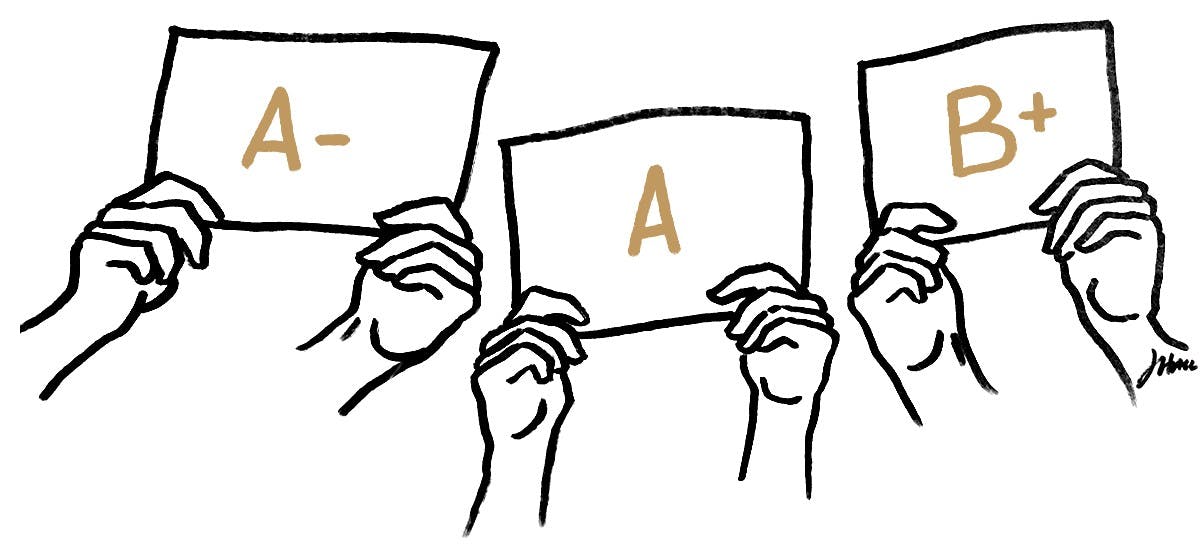
Last year, after working in the “real world” for three years, I decided to move to England in order to study for a Master’s degree. (By the way, if you can, find a company cool enough to let you move to another country to get a Master’s degree.) Going back to school reminded me that students often miss what a grade is meant to communicate. And teachers often fail to remind them.
After a year of classes, writing, thrown-away pages, and then slightly better writing, I found myself waiting for a big grade for my big, final project. The waiting was accompanied by a familiar, antsy feeling. You probably remember that feeling you’d get waiting for a big project to come back?
While I waited, I asked myself what this grade would say about me.
An A+ will say I’m as smart as I think I should be. A B will say I’m not quite as good as the really smart girl who sits next to me.
A C — well, *gulping sound* a C will mark me forever as plain ol’, stinkin’ average. *Secretly shudders at the thought of anything lower than a C.*
That’s how old, undergraduate me would probably think of grades. In other words, grades were a final marker of my ability, a certification of my innate intelligence or skill (or lack thereof).
Four years later, I realized how stifling this mindset was. It’s the mindset that our current system of education, I believe, has pushed us toward. Or, at the very least, it isn’t a mindset the system tries to correct. And there isn’t a single part of it that is wise or helpful.
Grades don’t tell us anything about who we are. They help us measure what we’ve gained. In other words, they don’t mark genius. They mark growth.
If we believe grades mark genius, we’ll always see them as endings. As markers of genius, grades act as a rubber stamp smushed against a forehead, telling a person what they can or can’t do. This kind of grading is symptomatic of conveyor-belt-education in which quality control inspectors toss out products that don’t seem quite up to snuff.
But if we view grades as markers of growth, they can be generative — continually opening onto the next right step up. Like signs in a forest marking a trail, grades can let us know things about the path ahead.
“The trail ahead gets really steep. If you found the trail you’re on difficult, maybe you should take this other route until your legs are stronger or camp out and do some stretching.”
“If you found this trail easy, why not give yourself a challenge on the next leg?”
What would our classes look like if we pressed our learners to think of grades as ways to make a plan instead of as stamps marking innate talent and skill?
“It looks like you found this a little challenging. Let’s identify the prickly points and take another pass at it. We’ve got time to learn.”
“You found this really easy it seems! Why not bump up the intensity next time?”
All a grade says, in other words, is that you’ve grown into a new challenge.
The pervasive mindset of measuring for genius instead of growth is subtle, but powerful. Teachers should probably address it according to their context, whether that means doing away with the word “grades” altogether or explaining clearly to learners what grades are all about.
Regardless, if we equip our learners with the right mindset, a grade never has to be discouraging. No matter the mark, it can be the beginning of new growth.
Using Pathwright is dead simple and doesn’t cost a thing until you’re ready to launch a path.
Get startedTopics in this article
